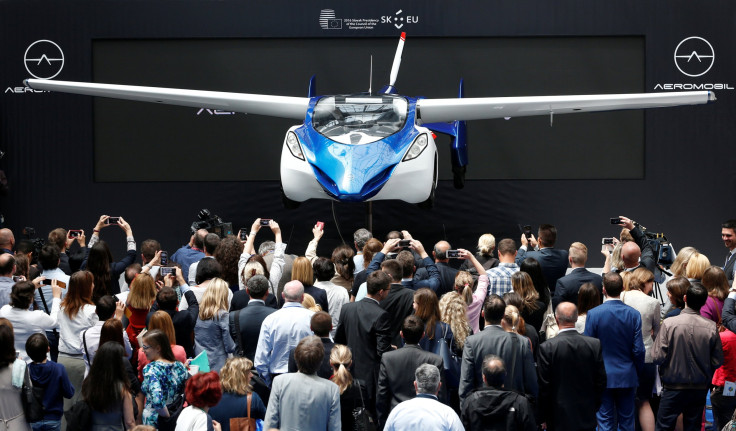AI-Based Voice Assistants, Wireless Earphones, VR, Iris Scanners, Flying Cars: Sci-Fi Technologies That Are Becoming Mainstream

2017 is expected to be an exciting year for tech enthusiasts, in general. For many so-called geeks, the year might be a unique one since some of the technologies that have only been talked about in science fiction till now are expected to become real concepts this year, complete with consumer release of such devices and features.
Here are five such technologies that are expected to not just be worked on by tech companies, but in fact have a mainstream commercial release.
Flying cars: Flying cars have time and again emerged in science fiction for over 50 years. They were mentioned in Phlip K. Dick’s 1968 novel, "Do Androids Dream of Electric Sheep," which in turn inspired movies such as "Blade Runner," which had scenes depicting them.
If you are interested in owning one, Dutch company Pal-V has offered them on sale and is expected to make deliveries by the end of 2018. Called Liberty, it uses a Rotax engine-based dual-propulsion drive train which enables it to both drive and fly.
In the drive mode, the propeller tucks into the rear while rotors are folded and stored in the top of vehicle when it is in the drive mode.
Pal-V claims that Liberty can reach a speed of 100 miles per hour on the ground and can reach an operating altitude of 11,480 feet.
Wireless earphones: Wireless earphones have been in the works for long, with some seeing a release last year, such as the Samsung IconX and the Apple AirPods, but in 2017, they are expected to become mainstream with many companies offering them out-of-the-box.
They are actually inspired by Ray Bradbury’s 1953 novel "Fahrenheit 451," in which wireless earphones are written about. The writer has imagined seashells that could be put over the ears and blast out music, entertainment and news.
Here’s a passage from the novel with the depiction:
"As Montag walks in the first night, he sees Mildred in bed, listening. And in her ears the little Seashells, the timble radios tamped tight, and an electronic ocean of sound, of music and talk and music and talk coming in, coming on on the shore of her unsleeping mind."
In Bradbury’s description, there are no wires involved with the “Seashells,” just like in wireless earphones such as Apple AirPods.
Virtual reality: Virtual reality took off well in 2016 and is expected to grow in 2017. The technology was referenced to in Damon Knight’s science fiction short story "You’re Another" — a story about a character who finds himself in a bizarre, perhaps movie-based reality.
VR transports the user to an alternative environment different from their physical one. It is being increasingly used for gaming, entertainment and even by the military. Applications such as VR fitness are also taking off, making it a part of our everyday reality.
Iris recognition: The concept of iris recognition, a technology expected to be included in upcoming flagship devices such as Samsung Galaxy S8 and iPhone 8, was brought to popular imagination by the Minority Report movie starring Tom Cruise, based on a 1956 science fiction story by Philip K. Dick of the same name.
By 2017-end, consumers can expect to see many phones using the security feature such as the Moto Z.
AI-based voice assistants: AI-based voice assistants, such as Samsung Bixby, are expected to be rolled out in 2017. But the concept was actually mentioned in Fredrick Pohl’s 1965 novel, ‘The Age of the Pussyfoot.’ Here’s an extract from the novel depicting the same.
"'Self-programming' means that the programmed software includes procedures for translating most normal variations of voice, idiom, accent, and other variable modalities into a computer-oriented sim-script and thence into the mathematical expressions on which the computers operate. As long as your personal joymaker is within reception range of your voice, you may communicate via other shared-time transponders if you wish.”
© Copyright IBTimes 2024. All rights reserved.





















